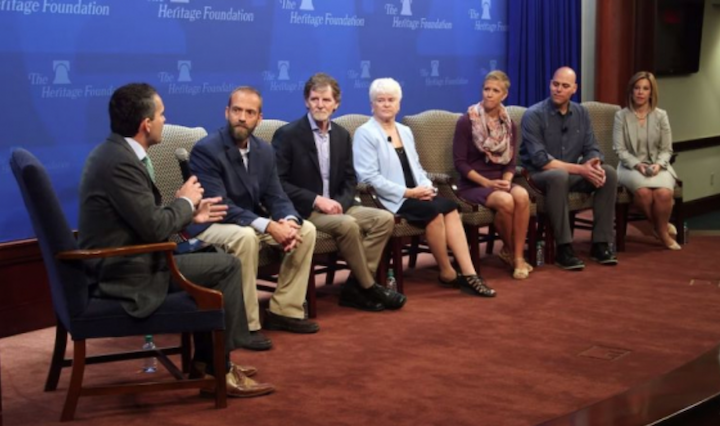
A Minnesota court has ruled that a Christian filmmaking couple must document gay weddings despite their religious beliefs that marriage is only between a man and a woman.
“Tolerance is a two-way street. Creative professionals who engage in the expression of ideas shouldn’t be threatened with fines and jail simply for having a particular point of view about marriage that the government may not favor,” Alliance Defending Freedom (ADF), Senior Counsel Jeremy Tedesco said following the decision. “Public officials can’t censor filmmakers or demand that they tell stories in film that violate their deepest convictions.”
Tedesco insisted that people should have the freedom to disagree on critical matters of conscience. “The same government that can force them to violate their faith and conscience can force any one of us to do the same,” he added.
The Larsens, who have been married for 15 years, say that they use their talents to “magnify Christ like a telescope.” Their Telescope Media company documents marriages and provides other services to Christian organizations, but Minnesota law requires them to also work gay weddings, if requested.
ADF explained that the case, Telescope Media Group v. Lindsey, challenges portions of Minnesota Statutes Chapter 363, which states that professionals must promote objectionable messages, even if they disagree with them.
“Posting language on a website telling potential customers that a business will discriminate based on sexual orientation is part of the act of sexual orientation discrimination itself,” judge Tunheim wrote in his ruling. “As conduct carried out through language, this act is not protected by the First Amendment.”
“For us as storytellers, we want to tell the truth as we see it through the Bible. From the beginning to the very end,” Carl Larson noted during a panel discussion on TV.
Facing possible fines and even jail time, the Larsens have for now suspended their wedding industry.
Others on the panel, such as Blaine Adamson, owner of t-shirt company Hands On Originals in Lexington, Ky., explained why these cases are so important for religious freedom rights in America. “We all at some point in our lives will find ourselves at crossroads, where we have an issue of conscience, where we know there’s something that we need to do. But whether it’s out of fear or because it’s the easy road, we decide to go against our conscience,” Adamson said. “When we make that choice, we lose something — in my case, what would have been freedom. We can’t just kick the can for the next generation.”
In order to abridge freedom of religious worship, precedence must be set in other areas first. That is going on full steam ahead, until eventually, “our country shall repudiate every principle of its Constitution as a Protestant and republican government…” Testimonies for the Church, Vol. 5, page 451.
Source References
Christian Filmmakers Must Work Gay Weddings Despite Religious Beliefs, Minnesota Court Rules
